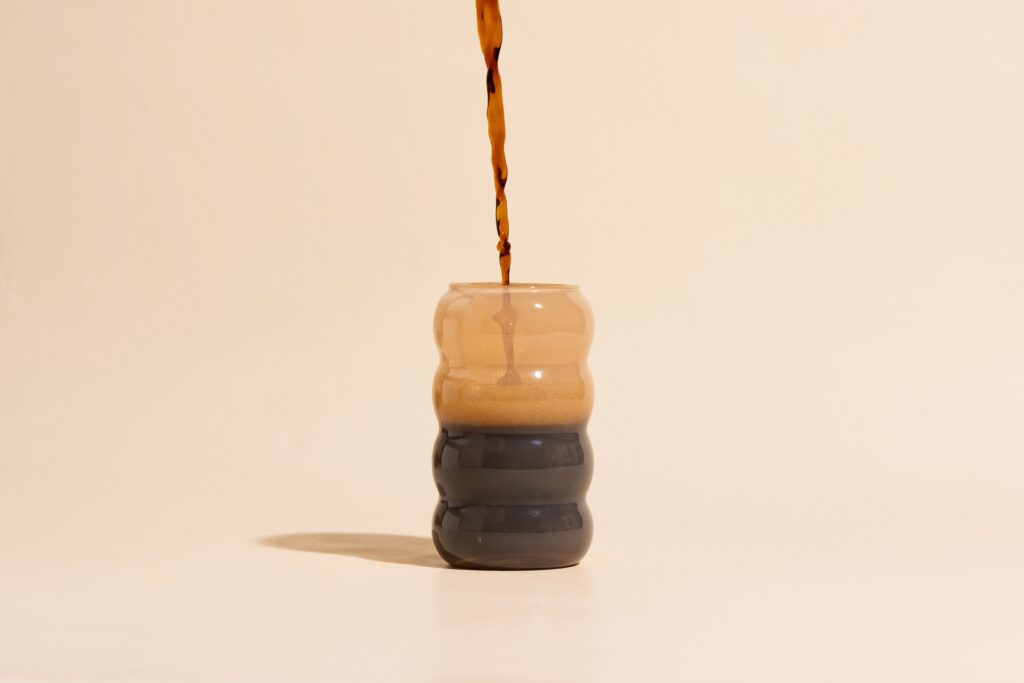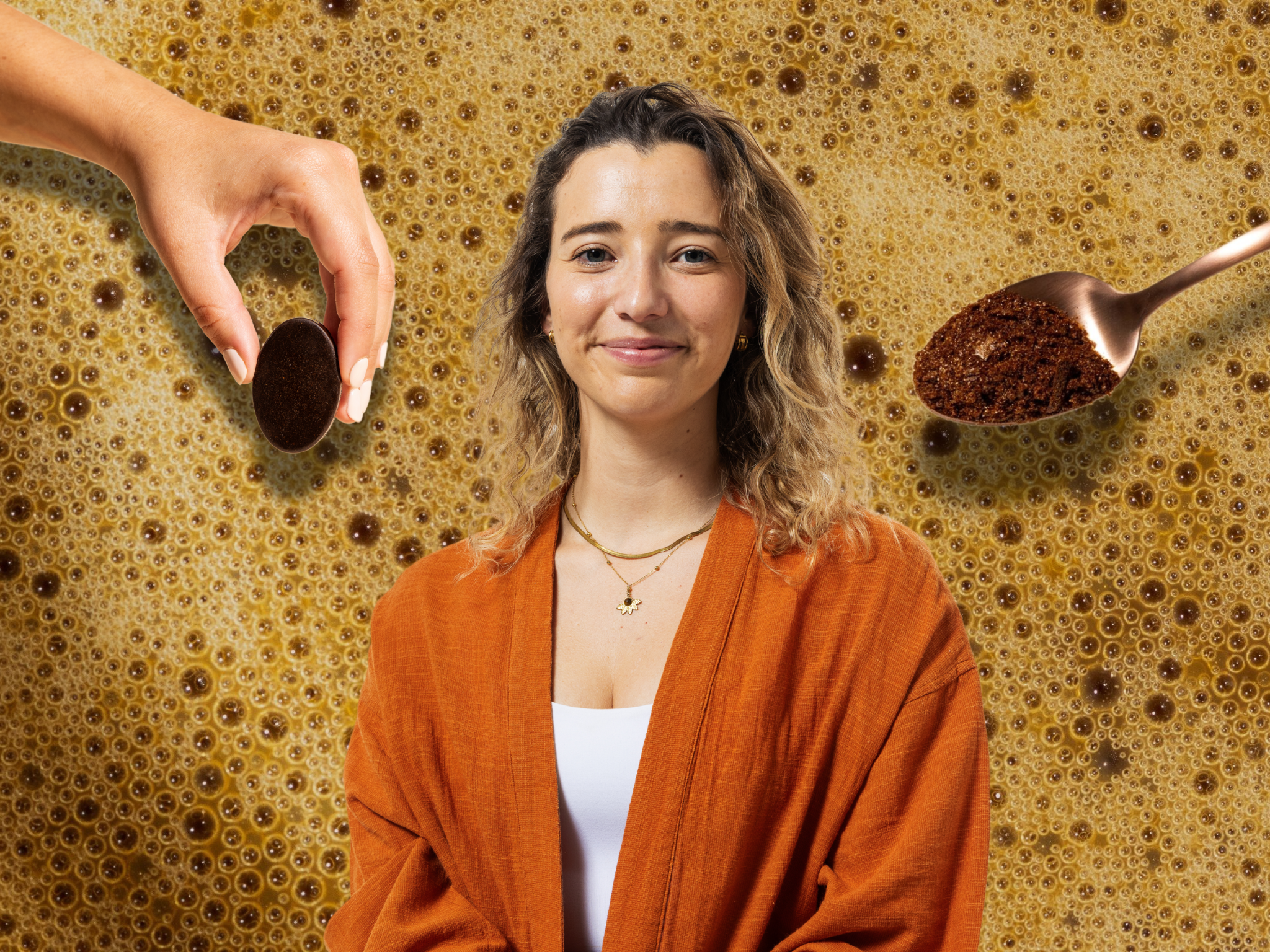Bean-Free, Climate-Ready: Compound Foods Expands Sustainable Coffee & Cocoa Ingredient Platform
5 Mins Read
US startup Compound Foods has expanded its tech platform to help food companies replace at-risk commodities like coffee and chocolate with bean-free alternatives.
Coffee and chocolate may go well together, but things are not going all too well right now.
Apart from red meat, no other foods generate as many greenhouse gases as cocoa and coffee beans. This accelerates climate change, which, in turn, hits these industries hard.
Crop failures and low harvests are becoming increasingly common, leading to shortages of two commodities whose demand keeps rising. That has caused massive price hikes too – in 2024, both coffee and cocoa futures broke all-time records, and the cost will continue to remain high this year.
It has necessitated food companies to look for alternatives. Take Barry Callebaut, for example – it’s the world’s largest chocolate supplier, but price and supply volatilities have pushed it to expand into cocoa-free alternatives. “Our non-cocoa solutions from precision-fermented sunflower seeds offerings… expand the portfolio of Barry Callebaut and offer all the variety of chocolatey experiences for our customers,” CEO Peter Feld told investors in its latest earnings call.
With climate change posing a long-term threat to both the coffee and chocolate industries, several startups have been selling bean-free alternatives.
San Francisco’s Compound Foods is one of them. Through its Minus Coffee range, the firm has been selling beanless brews in various formats – currently, it retails a functional instant oat milk latte geared towards women’s wellness.
But now, the startup is expanding its solutions to fellow food businesses – which now have “tighter margins, unpredictable supply, and urgent reformulation needs” – and adding cocoa-free chocolate to the mix.

How Compound Foods makes its bean-free cocoa and coffee
Compound Foods is offering the same tech platform it uses for Minus Coffee to alleviate the pressures felt by other companies too. “When I learned how vulnerable the supply chain really was, I felt compelled to ask: could we recreate the experience of coffee using more resilient ingredients, lower emissions, and food science?” said founder and CEO Maricel Saenz.
It reverse-engineers the sensory and functional properties of at-risk crops like cocoa and coffee, and then reconstructs them through agricultural byproducts and underutilised ingredients – think seeds, cereals, and fibre. The firm has developed specific formulation and processing methods for each target ingredient, leveraging roasting, extraction and fermentation to attain the desired flavour and aroma.
“We mapped over 800 compounds in coffee and built our formulation layer by layer,” explained Swetha Mahadevan, head of product at Compound Foods. “Our approach combines upcycling, domestic sourcing, and microbial science to deliver a product that tastes great and performs well.”
But as the cocoa supply crisis became untenable in 2024, Compound Foods decided to fast-track the development of a cocoa-free alternative, which it claims delivers comparable taste and functionality with a more stable cost profile.
The new B2B platform can slot into existing manufacturing pipelines, allowing companies to incorporate planet-friendly beanless ingredients without a costly reformulation process. Its coffee alternative is made from date, sunflower and grape seeds, carob, and chicory. It comes in concentrate, cold brew or instant formats, and can be used in ready-to-drink applications, cocktails, functional beverage mixes, snack bars, and foodservice offerings.
Meanwhile, manufacturers can buy its bean-free cocoa as a powder to replace conventional cocoa entirely, or as an extender that can blend with it. Made from carob, mesquite, spent grain, sunflower lecithin, and cascara (the outer skin of the coffee fruit), it’s also mixed with vegetable fats to offer a chocolate compound.
While cocoa and coffee already suffer from price instability, President Donald Trump’s tariff war has made things more uncertain. But Compound Foods sources and processes most of its ingredients stateside, reducing the “geopolitical and logistics risks that plague commodity markets”.

Can beanless coffee outperform conventional versions?
The startup, which has so far raised $10M in funding, says its ingredient platform offers custom builds for customers, with the ability to tailor the solutions to meet specific nutritional, labelling, or caffeine targets.
But do they live up to consumers’ taste expectations? If blind taste tests are to be believed, these products may just even outperform their conventional counterparts. In tests conducted by Purdue University, 60% of people preferred Compound Foods’ beanless coffee over premium brands like Blue Bottle and Stumptown.
“Our goal isn’t to replace the specialty coffee or craft cacao we love,” insisted Saenz. “It’s to offer a sustainable, cost-effective alternative to the part of the industry that’s most vulnerable, commodity crops grown at scale, traded anonymously, and increasingly exposed to environmental and economic risk.”
Global cocoa stocks have dropped to their lowest levels in a decade. Ivory Coast and Ghana – the two largest producers of the crop – have been the biggest victims, thanks to extreme weather, crop diseases, and reduced plantations in favour of illegal gold mining.
Meanwhile, the area suitable for growing arabica coffee – roughly forming a ‘belt’ between the tropics – is shrinking, and could be cut in half by 2050. This puts it among the 60% of endangered coffee species, with experts suggesting that arabica could become extinct in the next 60 years.

At the same time, chocolate is linked to vast amounts of deforestation, excessive water use, and high greenhouse gas emissions. Coffee isn’t far behind – its GHG impact is worse than pork, chicken, farmed shrimp, and cheese, and producing a single cup requires up to 140 litres of water.
By contrast, Compound Foods’ beanless coffee uses 92% less land and 94% less water, while producing 86% fewer carbon emissions. It is among a number of players offering bean-free brews, including Atomo, Voyage Foods, Prefer, and Northern Wonder.
Like Compound Foods, Voyage Foods and Prefer also make cocoa-free chocolate – as do Planet A Foods, Foreverland, Nukoko, Endless Food Co, and a host of others.



